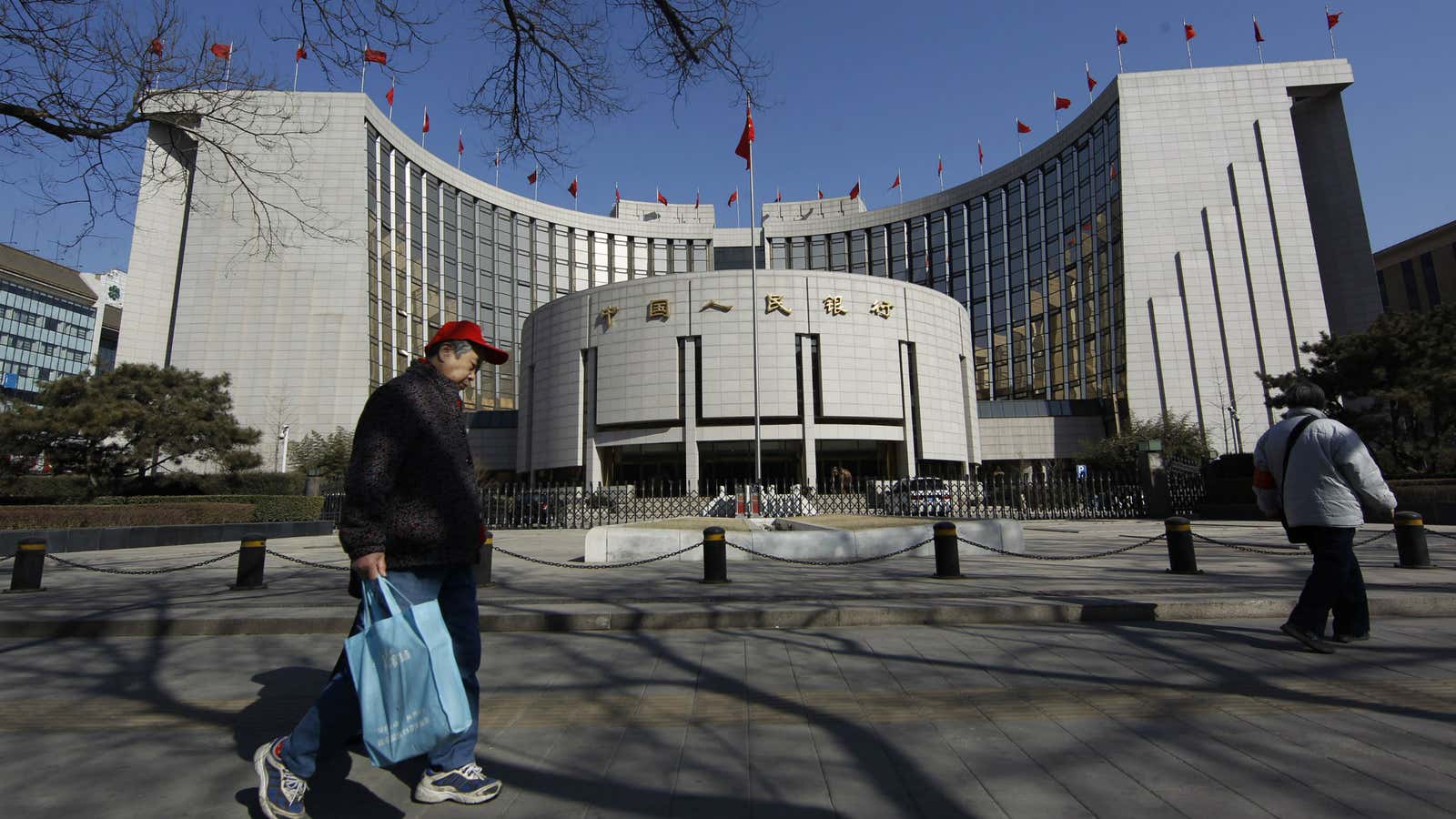Two of China’s biggest banks, Bank of China and China Merchants Bank, have recently made plans to adopt “living wills,” or plans to wind themselves down in the event they fail without relying on a government bailout.
While details about how the plans would work were not made public by the banks, their pending adoption is seen as a positive step for a banking system that is struggling to wean itself from a government-funded shadow lending system that keeps bloated state-run enterprises alive and starves private industry.
Li Yu, an analyst from Shenyin Wanguo, told the Chongqing Times that the establishment of “living wills” is a step toward the long-awaited establishment of bank deposit insurance in China. This year’s liquidity crunch is forcing a reevaluation of the risks in China’s banking system, Li said, and the living will can “help maintain financial stability and pave the path for the establishment of deposit insurance system.”
China’s bank regulator (and investors) may want to thank US Congressmen Barney Frank and Christopher Dodd. The banks are complying with the Dodd-Frank Act, the 2010 US law passed in response to the US bank-sparked global recession.
As foreign banks with US branches and total consolidated assets of more than $50 billion, Bank of China and China Merchant’s Bank are considered “systemically important financial institutions” or SIFIs (pdf, pg. 4), and required by US law to create a living will. Other Chinese banks that should follow suit include CITIC and ICBC.
It is highly unlikely that confidence in China’s banks can be boosted quickly, wills or no wills. The banks, and their managers, are held in such low regard that on Dec. 21 the former chief economist of China’s National Bureau of Statistics, Yao Jingyuan, issued a canine-tinged critique of the system during a Nanjing University summit. As the South China Morning Post reported, Yao said:
Banking in China has become like a highway toll system. Banks charge every time money goes through them. With this kind of operational model, banks will continue making money even if all the bank presidents go home to sleep and you replaced them by putting a small dog in their seats.
In a Dec. 19 statement saying it planned to adopt a living will, Bank of China’s board specifically noted the US requirements, adding that these plans “are designed to strengthen the risk management and precaution capabilities of financial institutions and maintain financial system stability.” That’s something watchdogs, and others, can appreciate.
